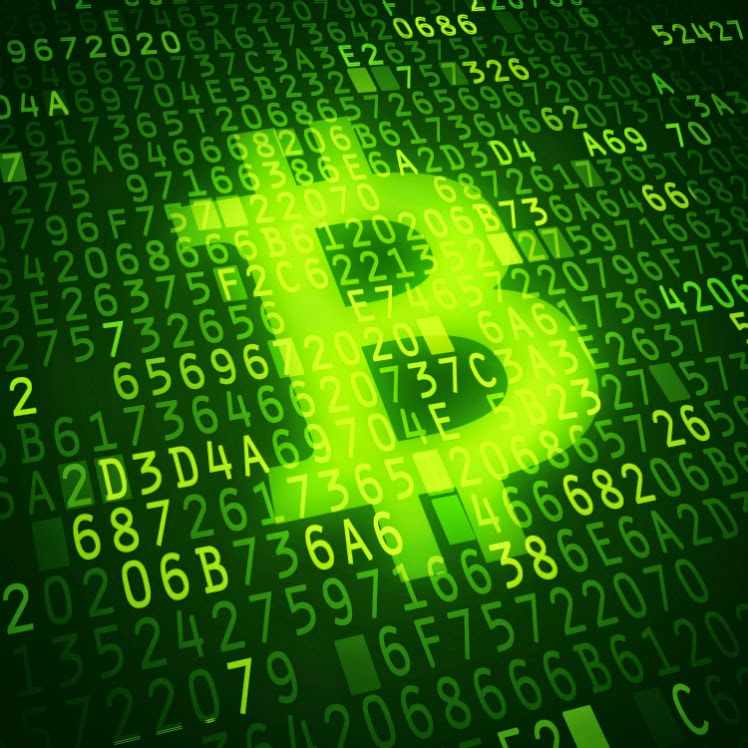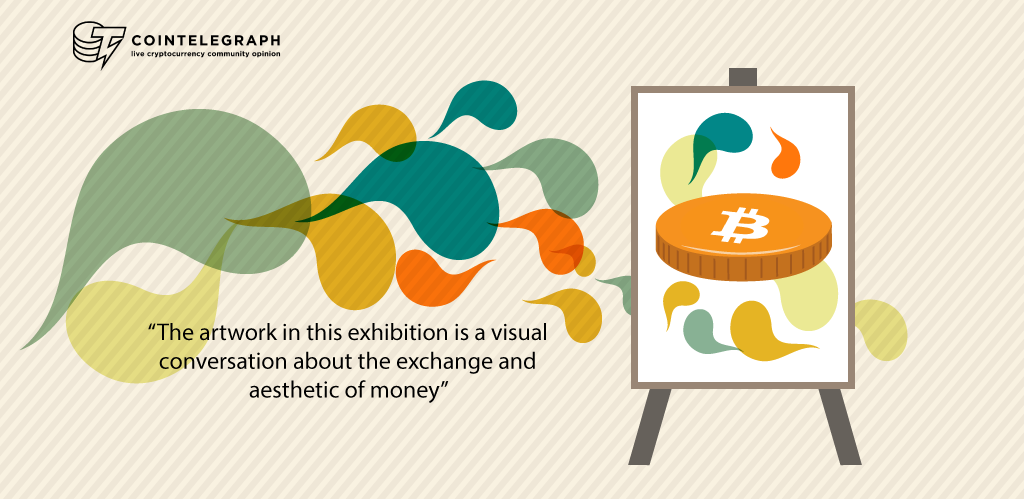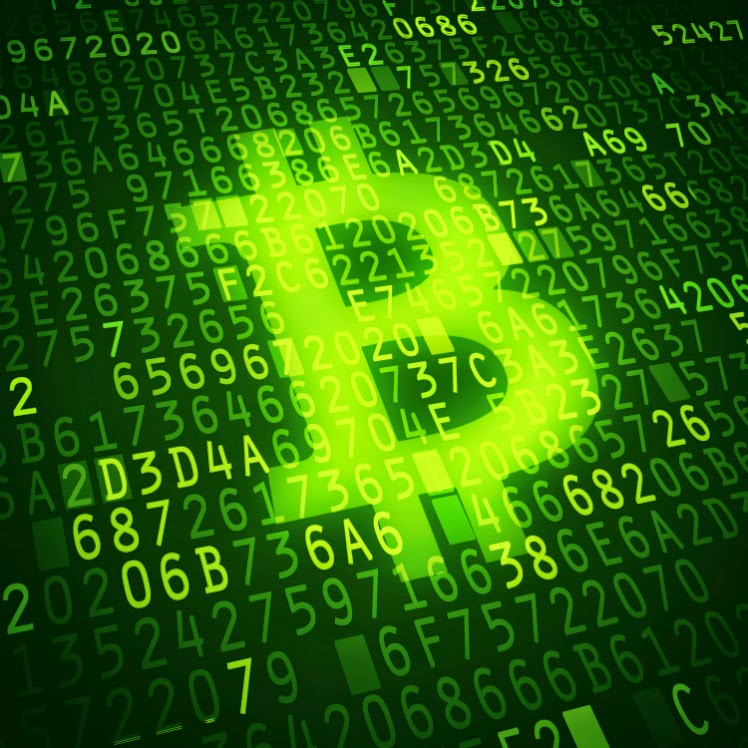
Bitcoin’s real value lies in the disruption it promises
The Bitcoin protocol, or any conceptually similar protocol, potentially simplify asset transfers. Most asset transfers require significant energy to execute. This is because of due diligence and compliance requirements, as well as vetting and validation by various parties. Purchasing cars, boats or houses from individual sellers often requires intermediaries performing due diligence and maintaining compliance with legal requirements.
Bitcoin protocols impact the structuring and implementation of contracts, bringing greater economic efficiency and legal transparency to otherwise opaque practices in specific markets. Lawyers draft contracts on a case-by-case basis, with significant energy devoted to the process: negotiation, development and enforcement.
One benefit is reducing legal fees, as these contracts could be standardised and distributed as open source templates. Financial markets would become transparent, as regulators and analysts could access the blockchain, without forcing the disclosure of specific positions.
There will be significant innovation and development centred around the Bitcoin ecosystem in the years to come. Much of this will initially revolve around payments, investments and financial systems. Its real value, though, lies in the decentralisation and disruption it promises.
Open your free digital wallet here to store your cryptocurrencies in a safe place.
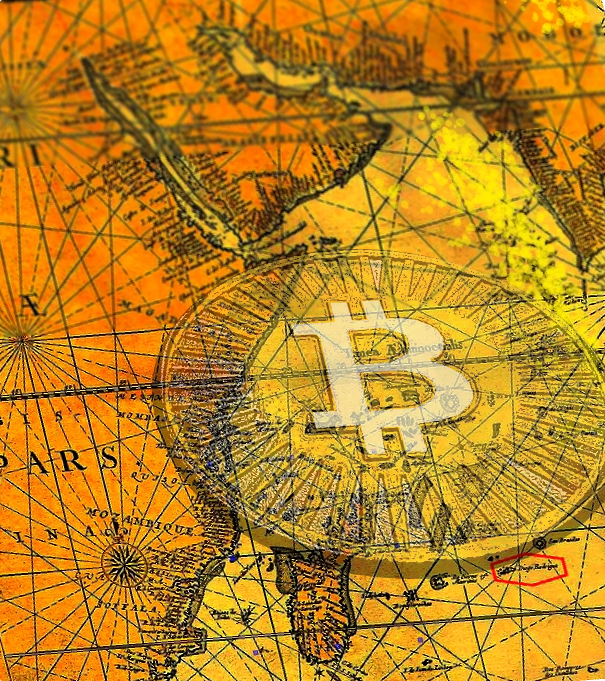
You say Bitcoin has no intrinsic value? Twenty-two reasons to think again!
Intrinsic Value Defined:
we will use the common Wikipedia entry for the intrinsic theory of
value. This is found at: http://en.wikipedia.org/wiki/Intrinsic_theory_of_value
An intrinsic
theory of value (also called theory of objective value) is any theory
of value in economics which holds that the value of an object, good or
service, is intrinsic or contained in the item itself. Most such
theories look to the process of producing an item, and the costs
involved in that process, as a measure of the item’s intrinsic value.
the properties that make it valuable? Some pundits like Warren Buffett
seem to remain stuck in the belief that only things you can touch, feel,
and see can be intrinsically valuable.
are unique or ground-breaking. These properties did not exist before
bitcoin. Some people would rightly point out that many of these
properties can be duplicated. There is, however, one extremely important
factor that separates bitcoin from any other digital coins on the
horizon: the protective shell created by the network that prevents it
from being hacked or commandeered
Bitcoin intrinsic value properties:
- It transcends nations, politics, religions, cultures and regulations.
These vary from country to country in ways that may seem bizarre to
populations out of its own borders. While one may believe that
governments always have their best interests at heart, it may be wise to
see that knife cuts both ways. Some drugs are banned in certain states
or countries that are allowed in others. Bibles are banned from purchase
is some countries. Religion, custom, dogma, superstitions prevent
various purchases based on man-made borders that continually shift over
time. These policies tend to be created by limited segments of
populations that can be self-serving. If one happens to be included in
the “correct” political party, race, religion, items can be purchased or
outlawed. It’s all opinion.
Is this a moral decision? Many of the same governments think it morally
acceptable to hold their own state-lotteries. The lotteries hold
significantly worse odds and tends to target those in the community that
are the least educated and most susceptible to poverty, alcohol abuse,
and have a generally poor understanding of mathematical probability.
Many have gone on to say that lotteries are simply “a tax on people bad
at math”. Many argue that this is a double standard of governments
which prevents them from taking the moral high ground.
the short term). It can’t be counterfeit. There is a record of who owns
it (by wallet id) and its validity is publicly known. It requires no
central clearing house. With any other currency, one must trust the
government from which it is issued will continue to maintain its value
by not “overprinting” to pay for its own mismanagement. You can send it
globally without having to trust anybody. This is not true with any
state issued country, bank, credit card company, or anybody else.
Volatility and long-term trust is still building, but when one transacts
in bitcoin, nobody gets in-between sender and receiver unless agreed
beforehand. It’s permission-less.
By making wallet IDs public, one can track the flow of money through
other transparent wallets. You cannot do that with any other currency.
You can use this feature to do things like monitor your children’s use.
This can make obsolete entire industries that are built solely on the
fact that money can be hidden, disguised, cheated, etc. These can also
happen to bitcoin, but pressure can be applied by the people to make it
transparent and accountable when needed. Auditors may insist on it for
compliance. The list of possibilities of this intrinsically valuable
feature can scarcely be imagined.
Plans for product layers on top of bitcoin to further its use to become
spendable based on contracts that can be programmed to complete with
built in variables, or be valid to purchase only certain items. Insist
your college bound kid buys books and not beer for example. Or based on
GPS in a cell phone, you could send your kids off shopping and it could
be programmed to be spendable only in certain stores.
Wallets containing the currency can be set to only unlock with more
than one signing key. This will leave hackers and thieves frustrated.
Try doing that with your grandpa’s money. It is an intrinsic piece of
bitcoin technology.
Prepaid credit cards can do some of these functions, but only to
locations and countries that accept credit cards. This list of locations
in countries outside of the US is actually decreasing with the amount
of fraud in the networks. Technically, the only item limiting of bitcoin
is the merchant’s acceptance of it. Given the natural law of least
resistance, these limitations could erode as more merchants around the
world realize the potential savings. The network effect will continue to
work its magic.
Absolute clarity of events and their corresponding order is available
in the block chain. Proof of ownership and purchase can be established
without a third party. The trusted and reliable distributed ledger
cannot reasonably be altered (barring a massive scale network attack
which becomes less likely as the network grows).
is nobody’s debt. Paying with bitcoin isn’t a “promise to pay”. It is
payment in full. This could potentially reduces fraud related expenses
on massive scale. http://www.statisticbrain.com/credit-card-fraud-statistics/ There
is no need for a merchant to get bank information or any other kind of
personal information that can be later used in identity theft.
It can defeat government issued capital controls. The same governments
try to hold their own citizens “hostage” monetarily by outlawing
movement of money outside its own borders. Ask any citizen from any
country ravaged by hyperinflation if this is important. Could it be
possible that it might ever become important
in the USA? If you can foresee the day people will be clamoring to get
out of the US dollar, where do you think they are going to go? Ask
Argentina.
As the money exists on the global ledger, all you need is the key. This
can be memorized, or written on any piece of paper – even confined
inside a microdot
the size of the period that ends this sentence. Some old time gold bugs
say you can’t bribe the border guards with bitcoin like you can gold. In
the future, border guards will have cellphones and internet access too.
We aren’t living in the 1960s Vietnam or before any longer.
The people in the USA may think this unimportant in their bubble view
of the world, but is this also true of the 150 or so currencies and countries with terrible track records?
Which other currency enjoys this property? Will enough of the world
outside of the US believe it to be so? Is it hard to imagine the
properties of bitcoin being intrinsically valued by populations
subjected to terrible economic policies? It only takes a billion people
in India fed up with corruption to want an escape mechanism out of the
control of the system. At that point, they won’t give a hoot about what
some American pundit said on “bubble vision” about intrinsic value.
If the citizens stand up united and demand a transparent government,
they can use bitcoin to follow the money in the same way governments use
powers at their disposal for surveillance on their own populations. In
today’s world money corrupts. In tomorrow’s maybe it will become
vice-versa. Let’s see if 86% of the world agrees that any tool that makes less opportunity for corruption is valuable.
You can program it to settle contracts based on certain events such as
date, proof of ownership, death, or a host of other factors that can be
validated programmatically without a third party to validate if the
conditions were met. It can be used as a record keeping asset tag, and
proof of ownership. Ownership of the private key to the bitcoin is by
definition, the owner. In addition, it can be the source record of
ownership for property title, copyrights, and intellectual property that
transcends borders and locally interpreted laws. In effect, the
records become the de-facto “single source of truth”. The currency
itself is globally accessible proof of ownership. Can these functions
and properties be reasonably argued to be valuable beyond the currency
itself?
Paying for items in a global world requires bank accounts. Bank
accounts are legal properties that can only be established with those of
legal age (18 in most locations). There is no minimum age requirement
to pay for items globally using bitcoin. How many people under 18 have
cell phones, AND need to spend money with no credit card. Smart
businesses have started to recognize this intrinsically valuable
potential.
The main attributes of money are often quoted these days, but one
attribute is rarely mentioned. Money has become surveillance. As people
continue to learn of the horrors of the NSA and other government efforts
to spy on every aspect of their lives, it only takes one person drunk
with power to make all the well-intention sounding policies reverse into
shocking horror. One government required Jews to register themselves
for easy identification, which was then used to “dispose” of them.
national origin, political party, age, place of work, address, and much
more can be determined by how and where one spends their money. To those
who think they have nothing to worry about because they are not doing
anything wrong, might ask themselves, what did the Jews have to fear
during the time they were self-registering? They also were not
(generally) doing anything wrong. That’s only one example in a history
littered with them. Is the ability to obscure one’s spending habits
intrinsically valuable? Is it possible to imagine how much of the
population of the world would think it is?
If one were to transfer value between large companies or nations, much
of the world has discovered bitcoin to be a very efficient payment
network to do this. If bitcoin was thought of as envelopes to be stuffed
with dollars or other currencies for transport, only the size of the
envelope itself that contains the dollars inside would be the limiting
factor. To increase the ability and usefulness of this feature, the
envelopes represented in bitcoin price will have to inflate enormously
to take on that load. The Federal Reserve and former Vice Presidents have caught on. So has smart Venture Capitalist firms that have a knack for being one step ahead of everybody else.
are being built up around the new currency (in use, if not government
recognition). Gold towns sprang up into eco-systems but crashed when
the gold veins ran dry. We know exactly how deep the bitcoin well can go
and the rate at which it will be found. What other modern day
ecosystems are being built because of the intrinsic values of a
currency?
for centuries. Bitcoin has the possibility to change the paradigm
completely. These banks will likely find ways to maintain their power
and wealth and there is nothing preventing them from moving into digital
currencies to maintain it. However, which other currency has the
possibility to change the dynamic? Many in the world will likely place
much value in the paradigm shift that is possible. When was the last
time a monetary unit threatened to rewrite the rules from the ground up?
from a whistleblower from the World Bank reports that all networked
banking infrastructure throughout the entire world can be traced back to
12 people who make decisions at the privately controlled US Federal
Reserve bank. Consensus driven, public records, and democratization of
money made possible by bitcoin, might change the rules.
the poverty riddled villages with no access to banking were able to
lift themselves out of poverty with simple abilities to pay suppliers
and start businesses. With the cross border scale and usability of
bitcoin, imagine the same results x 1,000. Are there any national
currencies up to this task?
Muggers of the future will be at a loss for what to do with the bitcoin
they can’t take from your wallet or purse. That money will be no good
to them without the private keys to spend it. There likely will no
longer be credit cards there was well. Could robbery itself become
obsolete? Hackers will soon have a difficult time stealing money from
multi-signature wallets.
Because of all of the reasons stated above, it might as well be called
the currency of freedom. Dictators will hate it. Totalitarian
governments will hate it in proportion equal to the amount of corruption the government enjoys.
The worst countries for freedom believe that money exist primarily to
serve the country and personal ownership of it is just an illusion they
can confiscate at will. Banks technically own it as soon it’s deposited.
Through court order, government taxation, or inflation, they always get
it back. Bitcoin offers some protection. We become our own bank.
Others might be open to the suggestion that if just ONE of these
factors is agreeable to most reasonable people, the description used by
Wikipedia might also be applied to bitcoin. A year from now, there
might be another list compiled that is just as long as this one – of
things that can’t possibly be imagined today.
Open your free digital wallet here to store your cryptocurrencies in a safe place.
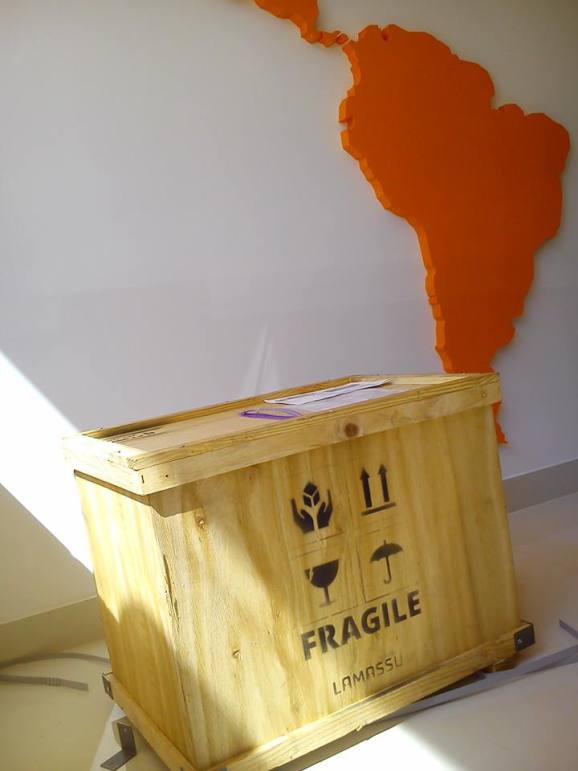
Poland gets first Bitcoin ATM with 30 more planned
the country’s first bitcoin ATM freshly launched in the capital Warsaw
and many more soon to follow, according to the operators.
set up to act as a hub for the Warsaw’s rapidly expanding bitcoin
scene, Piotr Hetzig, the company’s chief executive, told CoinDesk.
Launching the bitcoin ATM in the heart of Warsaw was aimed to boost the
visibility of the cryptocurrency in Poland, he explained.
the company’s plans go even further than that. A second ATM is to be
made available shortly in the Polish capital, with a network of bitcoin
vending machines eventually to be rolled out across the country.
the end of this year, as many as 30 bitcoin ATMs enabling [people] to
purchase and sell bitcoins are expected to appear in various parts of
Poland,” the operator said.
wide range of services tailored for bitcoin enthusiasts, as well as for
those who want to make their first step in the world of digital
currencies, according to Hetzig.
sessions, consultancy services, meetings and events, as well as sales of
hardware for bitcoin mining. Initiatives to raise public awareness of
the cryptocurrency are also planned.
new Lamassu ATM is now open for business and can be found at Bitcoin
Embassy Warsaw on 46 Krucza street. Opening hours are currently Monday
to Friday, 10am to 6pm, but may become available 24/7 in the near
future.
Denmark gets its first bitcoin ATM
“The Dubliner is an excellent place to [site] a bitcoin ATM, since they have a
lot of customers and long opening hours. The pub is also located very
centrally near the Stork Fountain, which is the center of Copenhagen’s
shopping district.”
Bitcoin centre and ATM launch in Prague
and was set up to provide face-to-face services for those unfamiliar
with digital currencies, as well as consulting services to registered
clients.
in the country’s digital currency market, with workshops and seminars
designed to increase bitcoin’s visibility in the Czech Republic.
centre is located on the corner of Arbesovo náměstí and Elišky Peškové
street, with the Robocoin ATM available from Monday to Friday, 10am to
7pm, with a single transaction limit set at 25,000 CZK ($1,200).
Open your free digital wallet here to store your cryptocurrencies in a safe place.
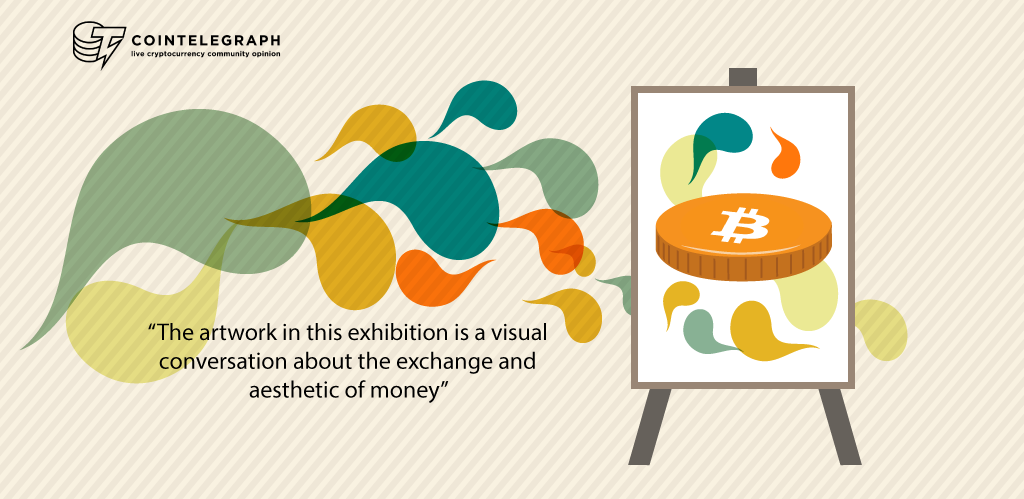
NYC Bitcoin Center gives Bitcoin a touch of class
(CoinTelegraph) NYC Bitcoin Center is
fast becoming a mecca for hip Bitcoin-related events with the launch of a
contemporary art exhibition by Jenna Lash this week.
festival, the center is
branching out to an ever more diverse demographic of Bitcoin followers, and
continuing to attract some noteworthy names.
pointillist painter Lash has an international following for her work, and a
selection of those indexed under her Monetary Series collection will be
displayed in New York until September.
“The artwork in this exhibition is a visual
conversation about the exchange and aesthetic of money,” she said in a press release about the event, “The highly-charged images of currency and
how they represent personal values that become public values are the focus of
this exhibit.”
Mirroring opinion
“Highly-charged” indeed, as the Bitcoin community is making
ever more significant waves in modern opinion of traditional currency and the
structures surrounding it. “Money is an abstract concept based on
faith,” Lash continues, “…Will we continue to need vaults, gold, soldiers,
and insurers to protect that faith? Or will virtual currency be our
saving grace?”
which “run the gamut of U.S. military
scrip, a U.S. silver certificate incorporating a Native American portrait, the Australian
Dollar, the Chinese Yuan, and two British Pound Notes, to highlight only a
few,” are hardly understated, some measuring up to 48 inches by 60 inches
(122 centimeters by 152 centimeters).
Spanos said he was excited about hosting the event, as Lash and her husband had
been regular visitors in the past. “We intend to give
the exhibition of these paintings the attention, care, and seriousness that the
works themselves demand,” he continued.
launch party tomorrow (May 29), and while not offering free energy drinks or
featuring sponsorship by the New York Museum of Sex as was the case with the
center’s music festival, it will provide a less business-oriented environment
for Bitcoin and cryptocurrency education to be spread.
the exhibition can be found here.
Open your free digital wallet here to store your cryptocurrencies in a safe place.

Twenty mind-bending secrets about Bitcoin
(BitcoinMagazine) This article will introduce some of bitcoin’s Mind-Bending amazing
abilities only few people know. As you read this list, remember your
favorite so can impress your friends with your new
incredible bitcoin knowledge.
1. Fun with programmable money
- Bitcoin wallets are like personal debit cards that you can create
and assign yourself to store your bitcoin. Some new wallet versions can
be programmed with bizarre abilities. - You can program features like GPS coordinates on your phone that make the money unavailable off if your kid leaves the city.
- You can also create “treasure hunts” where coins will suddenly be
released for you to use if you find yourself in the right place at the
right time. - You may also release money by calendar dates – gifting bitcoin
money that can’t be used until their 18th birthday or Christmas. Or set
up a will that releases amounts in intervals long after your death. - Huge potential for ideas not yet imagined.
2. First purchase with bitcoin
- Bitcoin’s price wasn’t established by a committee, government, or special council.
- Florida resident Laszo Hanyez may go down in history for buying the
most expensive pizza ever recorded. He also makes history for making the
first significant purchase using bitcoin. - His 10,000 bitcoins used in June of 2010 bought two Papa John’s Pizzas worth about $30 at that time.
- Today’s equivalent price is about $5 million.
- For the first 18 months they were worthless. The pizza purchase was
the event that set the price of bitcoin at about a third of one penny
each. - Within weeks, they were being bought and sold for 8 cents, representing a price increase of over 1,000%.
3. Bitcoins to billions
- In 2013 the price of a single bitcoin went from $13 to over $1,000 for an increase over 7,000%.
- At that rate, the owner of one bitcoin today would be a millionaire in two years.
- And would become a billionaire only 18 months after that.
4. Bitcoin is not alone
- Thousands of other digital currencies have since been created once bitcoin became popular.
- Litecoin, Peercoin, Dogecoin and many more can be purchased on various online exchanges.
- Thousands of people buy altcoins, hoping the bitcoin lighting strikes twice.
5. World’s fastest supercomputer
- The current computing power protecting the Bitcoin network is over
6,000 times more powerful than the top 500 supercomputers of the world
combined. And still growing faster. - Computer power is measured in “petaflops”. One petaflop is equal to one thousand trillion calculations per second.
- Top 500 supercomputers combined can calculate 250 petaflops. (Indicated by the arrow on the graph below).
- By comparison, the bitcoin network can calculate 883,000 petaflops.
- It is roughly the equivalent in scale between eight sticks of butter verses the largest 15,000 pound African Elephant.
6. The amazing bitcoin wallet
- Before you buy bitcoin you can create your own personal bitcoin wallet before you fund it.
- The number of possible wallet IDs that can be created are roughly the same amount as atoms on the earth.
- You can create as many as you want. They are free.
- New wallets can be secured with two or more passwords.
- You can also print your wallet to make a “Paper Wallet” that allows you to store your bitcoin off-line.
7. Spend bitcoin with smart phones for everyone
- The $25 smartphone is on the way.
- It is estimated that in 2014 there will be more cellphones than people on earth.
- Many poor countries just skipped land-line telephones and went straight to cellphones.
- Where they don’t have electricity, they charge them daily using solar panels.
- Most developing countries do not have access to banking – but the bank can come to them with bitcoin and a smartphone.
- Sending digital cash has already proven to lift entire villages out of poverty.
- This opens up their entire world from which to buy and sell items rather than just a few neighbors with cash on hand.
8. Magic the Gathering and bitcoin
- The first big online bitcoin exchange was Mt. Gox. It got its start and name by trading playing cards for “Magic The Gathering Online EXchange.
- They once accounted for over 80% of all Bitcoin trades.
- They started trading bitcoins when they were worth less than a dollar.
- Unsurprisingly, when the world found out that bitcoins were worth a
lot more than playing cards, the tiny company was overwhelmed. - More than half of all first generation Bitcoin exchanges have closed down.
- Now big finance companies are creating their own exchanges in the US that are regulated and insured.
9. Say goodbye to “Bitcoin” and hello to “Bits”
- Currently, one full bitcoin is divisible down to eight decimal places.
- The Bitcoin community has started referring the the sixth decimal point from a full bitcoin where they will be called “bits.”
- Bits are part of bitcoins as pennies are to a dollar – except it would take a million of them to buy a full bitcoin.
- Calling them “nano-dimes” sounded dumb.
- Today one hundred dollars migh buy you .2 bitcoins. Or it can buy
you 200,000 bits. It’s the same amount, but which one makes you feel
richer? - At some point, we might be able to sing that song (commonly played with hand- drums). “Shave and a haircut.. 2 BITS”
10. Spy Vs Spy. Your bank in a microdot
- Future Bitcoin billionaires can include their entire banking Bitcoin
fortune – in a dot the size of a period. When you have access to any
computer or phone with Internet connection you can simply type in your
account number and password as needed. - Your account is all stored and available to you on the public ledger
available anywhere in the world with an Internet connection.
11. Forget money laundering. Your activity is recorded
- Every transaction is tracked the Bitcoin public ledger, recorded and
shared around the world. The ledger cannot be changed and it’s
continually reconciled, verified and protected by bitcoin’s world-wide
network. - Every time a bitcoin trades hands, a trail of digital breadcrumbs follows it forever.
- You may or may not allow people to know your personal wallet
information, so your bitcoin account is as secret as you want it to be. - Once bitcoin passes through widely known wallet addresses, it may be
traceable by super-secret organizations that may, or may not, rhyme
with Em- essay. - Relax, if you aren’t doing any really, really bad – it’s probably
not worth the trouble for anybody to track your every spend. Not one
bit.
12. Gambling once accounted for most transactions
- The web gambling site “Satoshidice” once accounted for about half of bitcoin transactions.
- Due to murky gambling laws in various jurisdictions, gaming on Satoshidice is currently not allowed from US-based IP addresses.
- Provably Fair (http://provablyfair.org/)
is a website that has risen to act as an independent probability odds
checker for people to validate the odds of customer bets being
mathematically fair for the computers running the gaming systems. - Many online casinos are having their computer programs independently and voluntarily certified.
- Today bitcoin use is spread over several industries in addition to gambling.
13. Watch people trade in their paper money
- The website Fiat Leak shows a world map which allows you to see which country is exchanging their native currency for bitcoin in real-time.
- The larger the coin floating up – the bigger the dollar amount.
- The amounts all accumulate over a 10 minute period, which is the
point that the ledger is reconciled and copied throughout the world for
verification. - Once you go digital, you don’t go back.
- Ask the tape recorder.
14. It might become currency for poorly run countries
- Total value of bitcoin measured in US Dollars has surpassed 100 national currencies out of 160.
- Some are
beginning to ask if it is possible to one day to scrap some smaller
national currencies that continue to fail – and use bitcoin instead.
15. Bitcoin may be more important than the internet
- Several hundred million dollars are projected to be invested into Bitcoin startups by large corporations in 2014.
- Comparisons of importance are made by experts and scientists daily,
who often talk about the importance of how this will change the world
and often compare it with the invention of the Internet itself. - Marc Andreessen, who invented Mosaic, the first web browser, is one of many technical professionals who talk about Bitcoin and
reminds him of how he and his friends changed the Internet and World
Wide Web back in 1993 when it was still considered a techie geek
technology. As a reference point, most of the US was using the internet regularly just seven years later.
16. Watch bitcoin network grow
- See the time-lapse representation of the bitcoin network build out as it assembles and grows together around the world.
- It’s not much different than watching the progress of the early internet grow.
17. Robbing money may become obsolete
- New digital wallets will require at least two signatures (passwords) or more to use.
- This might include government’s robbery of its own citizens as many countries help themselves to one’s banking funds when they want.
- One can require as many signature passwords as you like. Go nuts and
require 51 signatures… Imagine the Senate being compelled to reach
majority before spending your taxes locked in a public wallet.
18. It can stop identity theft
- As making payments with bitcoin is the equivalent of cash, there is no banking information required from a retailer.
- The hacker attack at Target, Neiman Marcus, and Michael’s (among a
host of others) that stole users banking credit card information
wouldn’t have happened if they had only accepted bitcoin payment. - Paying in bitcoin is not a promise to pay. It’s payment in full.
19. No permission required
- Over half of the world have no banking account. They can’t get
access to regular loans, credit or checking account. They can’t get
permission from the creditors. - Bitcoin doesn’t require a bank account or credit report, and you
don’t have to be of legal age for contracts. And they can buy and sell
in a world-wide market for once. They didn’t need permission from the
courts. - One doesn’t need to be a citizen, or have identification or forms to fill out to own it. It requires no government permission.
- You are your own bank. No permission required.
20. Bitcoin the currency is only the beginning
- The Bitcoin network and ledger has features that can also function
as a way to store records of ownership, titles, copyrights and
trademarks, home and car titles. - It can replace the function of a notary public.
- All records are shared and distributed in a central location shared
by the entire world copied on thousands of millions of computers. - As the Internet did to the publishing industry, Bitcoin could
similarly disrupt several other fields or even render them obsolete. - Anybody’s job it is to move funds from one account to another may
need to learn a job as those functions can now be programmed, automated
and transparent. - Bitcoin 2.0 technologies and new start-up companies have already begun.
This list is only the start. Look into the amazing bitcoin and report
back your own found mind-benders in the comments section. Then play
bitcoin trivia with your friends – they may not believe you.
Open your free digital wallet here to store your cryptocurrencies in a safe place.
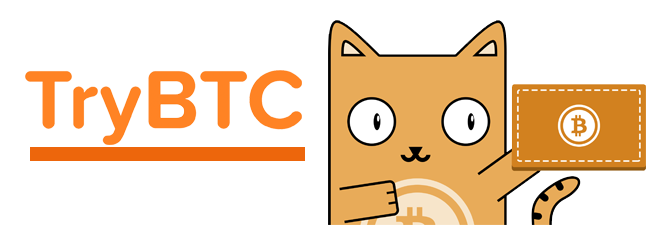
10 things you should know about Bitcoin and digital currencies
cryptocurrencies, but not all of them are.
to reach a broader demographic than Bitcoin did. As of March, more than 65 billion Dogecoins have been mined, and the production schedule of this
cryptocurrency is in production faster than most.
regulations on digital currencies, but it often warns about investment schemes and fraud. The Financial Crimes Enforcement Network (FinCEN), an agency under the Department of Treasury, took initiative and published virtual currency guidelines in 2013. Many countries are still deciding how they will tax virtual currencies. The IRS is specifically concerned with virtual currencies being used for unreported income.
outline the pros and cons of Bitcoin. The hearing ended up providing a
financial boost for the currency, because US officials talked about it as a
legitimate source of money, as opposed to only discussing its role in illegal
activities.
Wallet for Android runs on your phone or tablet. To store the Bitcoins, you have three options:
doing your own backups.
are responsible for them. Mobile apps allow you to scan a QR code or tap to
pay.
anything happens on their side or it gets hacked, you run the risk of losing
the Bitcoins, so extra backups and secure passwords are suggested.
is, Bitcoins can be stolen in huge quantities, just like money, and with no
centralized bank, there’s no way to recoup the losses. There are several types of Bitcoin ATMs, which exchange Bitcoins for flat currencies. Most machines are expensive and rare, ranging from $5,000 to $2,000. Skyhook,
a Portland, Oregon-based company, demoed a $1,000, machine at a conference this month. It is the first portable, open source ATM.
specific software, which is free and open source. The most popular is GUIMiner, which searches for the special number combination to unlock a transaction. The more powerful your PC is, the faster you can mine. In the early days, it was easy to find Bitcoins, and some people found hundreds of thousands of dollars worth of the cryptocurrency using their computers. Now, though, more expensive hardware is required to find them. Each Bitcoin blockchain is 25 Bitcoin addresses, so it takes a lot of time to find them on your own. The exact amount of time ranges depending on the hardware power, but mining all day could drive your energy bill up and only mine a tiny fraction of a Bitcoin — it may take days to mine enough to purchase anything.
security issues remain, and that will continue to be a problem. In 2013, Mt. Gox, a Japanese exchange, handled 70% of all Bitcoin transactions, but they lost some 750,000 Bitcoins in February 2014 and filed for bankruptcy, and nothing has been proven in the case. Since it’s universal, it’s useful for international transactions, and could be helpful for transactions in developing countries.
Open your free digital wallet here to store your cryptocurrencies in a safe place.

Bitcoin Society CEO: Why digital currency is a tool for global good
(CoinDesk) The weekend before last week’s Bitcoin2014 conference in Amsterdam, 22-year-old Matthew Kenahan had a choice to make – one that he said was “probably one of the most difficult decisions I’ve ever had to make”.
rewarded with not only winning the award for ‘Most Impactful Charity’, but also for ‘Bitcoin Champion’ after Andreas Antonopoulos was unable to accept the prize due to a conflict of interest.
My sincere thanks to anyone who voted for me in the blockchain awards. I apologize for not being able to accept due to conflict of interest
— AndreasMAntonopoulos (@aantonop) 16 Maggio 2014
Tool for charity
we’re trying to connect people,” Kenahan explained
“[Bitcoin] allows you to create a unique address, for a very specific cause […]
we see both the incoming and outgoing transactions, and we can see that
it’s used for a very specific cause.”
Image problem
Future plans
Open your free digital wallet here to store your cryptocurrencies in a safe place.
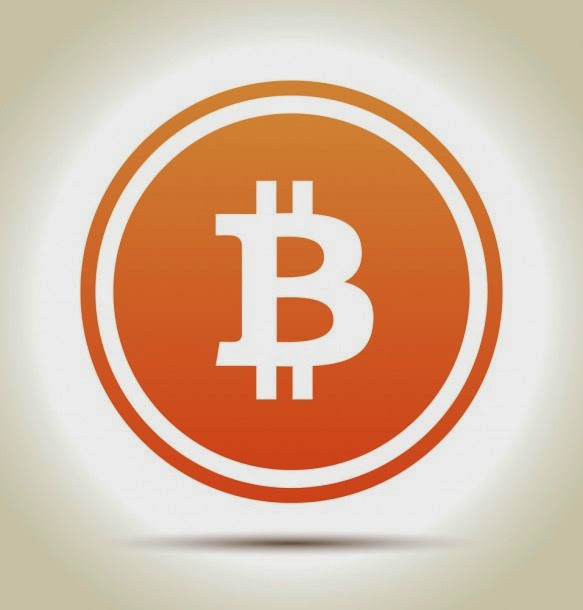
Bitcoin backers work to make it mainstream
geeks and enthusiasts had dreamed of: an international, decentralized,
anonymous, and transparent virtual currency that could potentially
replace inefficient traditional ones.
the Wall Street Journal, Bitcoin participation requires “a certain
faith in the benevolence of strangers.” But instead, the general public
is ambivalent at best about the virtual currency, while
many Bitcoin-related startups fight an uphill battle to convince the
world that it is at least comparable to its established counterparts, if
not better. Some retailers are pro-Bitcoin as well. Overstock.com and
TigerDirect now accept it as payment.
some time, are also bullish on the future of the digital currency and
believe there should be easier ways to invest in it. They established
their fund for people who are eager to invest in the currency, but who
don’t want to actually own bitcoins. Their first-of-its-kind
exchange-traded fund can be bought and sold on the public markets like a
stock or an index fund. Previously, people interested in trading
bitcoins as an asset class had to store the currency themselves and take
on the risk that goes with that. The brothers were recently quoted
saying their business will remove “the friction of buying…while offering
similar investment attributes to direct ownership”.
longstanding obstacles to its viability as a consumer product. It’s
likely that in the coming months new services will continue to emerge
that aim to make Bitcoin mainstream.
Open your free digital wallet here to store your cryptocurrencies in a safe place.
Andreessen sees bitcoin as the ‘big breakthrough’
Marc Andreessen, the tech entrepreneur who rose to fame as one of the founders of Netscape, takes the latter view, going as far as to say that in 20 years we will be talking about bitcoin the way we now talk about the Internet.
Andreessen argues that it has the potential to actually be a safer form of ecommerce than the credit card-based system that is currently in place.
Open your free digital wallet here to store your cryptocurrencies in a safe place.

Marc Andreessen: In 20 years, we’ll talk about Bitcoin like we talk about the Internet today
(WashingtonPost) The investor and Web browser pioneer Marc Andreessen thinks we’ll
all look back in 20 years and conclude that Bitcoin was as influential a
platform for innovation as the Internet itself was. He says that tech
companies think their meetings with President Obama on privacy are a
waste of time. And he calls net neutrality a “lose-lose.” In a
wide-ranging interview with The Washington Post this week, Andreessen
painted a picture of a future that’s distributed, messy and fraught
with tension. Here’s an edited transcript of our conversation.
Is there anything that Washington has built a wall against in terms of progress?
Well, the big thing right now for the tech industry is the Snowden
revelations, and the consequences of that for the American tech
industry. Specifically, in two areas: One is that the level of trust
that customers have [in] American tech companies has been seriously
damaged. And that is especially — but not exclusively — true outside the
United States. Every time another revelation comes out, like the one
this weekend about hijacking the routers on their way out of the country, or the one about hacking into the Internet companies’ backbone networks — every time one of these shoes drops, and apparently there is just an unlimited
number of shoes — every time one of these things happens, it’s a
serious blow to the credibility of these companies, especially outside
the U.S. And so there’s a really big, I mean very, very, very high level
of concern in the Valley that the American tech industry is in trouble
outside the U.S.
And then, two is this balkanization of the Internet that’s happening
now. As more revelations happen, more and more countries are saying:
“Okay, if we can’t trust the Internet, if the NSA is going to watch
everybody on the Internet all the time, we’re going to have to break off
and have our own Internet. Have our own firewalls, do what the Chinese
do, have our own private Internet or whatever the hell it’s going to
be.” This issue is being used as political cover for what these countries want to do anyway.
That brings us to, “Okay, how is the American government getting in
front of this?” And the answer is, “Not even a little bit.” The view in
the Valley is that the White House has hung the NSA out to dry. Just
like, “You’re on your own.” And there’s basically no effective
communication right now that I’m aware of between the American
government, especially the administration and American tech companies,
on like, “Okay, what happens now?”
There isn’t?
No.
Those meetings that occurred, that’s just for show?
Yeah, people come back, and they’re like, “Nothing happened.” The
Obama administration does not seem to have any real — they don’t seem to
have a plan. They seem to be in the mode of they kinda hope that it
goes away. And they hope that if they get face time with the execs they
can just mollify everybody and over time, the issue will just dissipate.
But I’m not aware of any substance that’s come out of those meetings.
I’m not aware of anybody who’s come back from those meetings saying:
“Okay, now there’s a plan. Now we know what’s going to happen.” It’s
been the opposite. It’s been people saying, “I don’t even know why I
went.”
Is there anything tech companies can do, whether on the Snowden stuff, or culturally?
These technologies escalate the power of government, but they also
escalate the power of business, and they also escalate the power of
individuals. So everyone’s been upgraded. And it’s a recalibration of
who can do what, and everybody can do new things, so everybody’s uneasy
about it. Governments are very worried about what citizens are going to
be able to do with these new technologies. Citizens are very worried
about what governments are going to do, and everybody’s worried about
what businesses are going to do. It’s this three-way dynamic that’s
playing out. And so for any of these individual issues, it’s not just
“What is one leg of this triangle going to be doing?” It’s, “What are all three of them going to be doing, and how will the tension resolve itself?”
Any thoughts on all these mergers that are being announced?
Not specifically on the mergers.
Or net neutrality?
So, I think the net neutrality issue is very difficult. I think it’s a
lose-lose. It’s a good idea in theory because it basically appeals to
this very powerful idea of permissionless innovation. But at the same
time, I think that a pure net neutrality view is difficult to sustain if
you also want to have continued investment in broadband networks. If
you’re a large telco right now, you spend on the order of $20 billion a
year on capex. You need to know how you’re going to get a return on that
investment. If you have these pure net neutrality rules where you can
never charge a company like Netflix anything, you’re not ever going to
get a return on continued network investment — which means you’ll stop
investing in the network. And I would not want to be sitting here 10 or
20 years from now with the same broadband speeds we’re getting today. So
the challenge, I think, is to accommodate both of those goals, which is
a very difficult thing to do. And I don’t envy the FCC and the
complexity of what they’re trying to do.
The ultimate answer would be if you had three or four or five
broadband providers to every house. And I think you actually have the
potential for that depending on how things play out from here. You’ve
got the cable companies; you’ve got the telcos. Google Fiber is
expanding very fast, and I think it’s going to be a very serious
nationwide and maybe ultimately worldwide effort. I think that’s going
to be a much bigger scale in five years.
So, you can imagine a world in which there are five competitors to
every home for broadband: telcos, cable, Google Fiber, mobile carriers
and unlicensed spectrum. In that world, net neutrality is a much less
central issue, because if you’ve got competition, if one of your
providers started to screw with you, you’d just switch to another one of
your providers.
There’s more and more integration between Bitcoin and the
financial services sector. But a lot of people who support Bitcoin
supported it because it was sort of disconnected from the infrastructure represented by government and everything else.
So we sort of have a theory on this, on where really disruptive
technologies come from. So the really new disruptive technologies come
from the fringe. This was true of PCs. Steve Jobs was, like, a
hippie. Internet came from the fringe. No big technology company thought
the Internet was going to be important, right up until basically 1995
or 1996.
Bitcoin is the classic instance of that. Bitcoin didn’t come from
Citibank; it didn’t come from the Federal Reserve; it didn’t come from
Visa. It came from the fringe. And now Bitcoin is in the early stages of
mainstreaming today. And the signs that it’s in the early stages of
mainstreaming are mainstream venture capital firms funding mainstream
startups, employing mainstream engineers to build services that’ll be
used by mainstream people. You’ve got big companies that are not yet
doing a lot with it, but are looking very seriously at it. So every big
bank has people that are trying to figure out what to do with Bitcoin;
every big e-commerce company has people that are trying to figure out
Bitcoin. You have mainstream regulators figuring it out; you’ve got
people at the Federal Reserve, and the Treasury Department and IRS that
are figuring it out. At the state level, people are engaged on it. And
so, it’s in the early stages of mainstreaming.
It’s already happening.
Anybody who thinks Bitcoin makes it easier to do transactions that aren’t
tracked by the government is 100 percent wrong. The transactions all
happen in public view. Anybody can look at the entire ledger and verify
who owns what. So if you’re a law enforcement agency or an intelligence
agency, this is a much easier way to track the flow of money than cash.
So I think actually law enforcement and intelligence agencies are going
to wind up being pro-Bitcoin, and libertarians are going to wind up
being anti-Bitcoin.
For [journalists], the big challenge has been explaining what
Bitcoin is to people. And I think we’ve always explained it as a
currency, but does that — now that people know about it in terms of a
currency, does that prevent them from [grasping Bitcoin’s full
potential]?
I have a lot of friends who are programmers. The programmers have always gone like, “Those [Bitcoin] guys are crazy.”
And then, almost 100 percent of the time, they sit down, read the paper,
read the code — it takes them a couple weeks — and they come out the
other side. And they’re like: “Oh my god, this is it. This is the big
breakthrough. This is the thing we’ve been waiting for. He solved all
the problems. Whoever he is should get the Nobel prize — he’s a genius.
This is the thing! This is the distributed trust network that the
Internet always needed and never had.”
So, one of the challenges is you take people who aren’t
professional programmers or mathematicians and then you expect them to
understand it from a standing start. And it’s daunting. And so then it
gets a word attached to it, like “currency” or whatever you want to call
it, and then people think that it is something it isn’t. And you have a
sense of this, but it’s a much deeper concept than currency. It’s the
idea of distributed trust.
So the business opportunity posed by this “distributed trust
network” — as an investor, what do you see that you could potentially —
Hundreds or thousands of applications and companies that could get built on top.
Is this, like, a billions-of-dollars kind of industry?
Yeah.
Trillions…?
Yeah! (Laughs, steeples his fingers Mr. Burns-style). Yeeeah… (Laughs) I have the haircut, I can do it.
Digital stocks. Digital equities. Digital fundraising for companies.
Digital bonds. Digital contracts, digital keys, digital title, who owns
what — digital title to your house, to your car. Like for example, you
get a digital title on a car, attached to a digital key, where you own
your car on the Bitcoin blockchain and on your smartphone. The key for
opening your car and starting your car is tied to that title. And if I
sell you my car, automatically you get title, and you get the key that
lets you operate the car, and it’s all digital, and it’s all unique, and
it can’t be cracked. You’ve got digital voting, digital contracts,
digital signatures. You’ve got unique pieces of digital content. If you
guys wanted to know exactly who had every piece of content you ever
made, you can track that. It’s this long list. And then every aspect of
financial services: insurance contracts, insurance derivatives, currency
exchange, remittance — on and on and on. It gives you a chance to
basically go after this very broad category of online business in a new
way. And, by the way, if we had had this technology 20 years ago, we
would’ve built it into the browser.
E-commerce would’ve gotten built on top of this, instead of getting
built on top of the credit card network. We knew we were missing this;
we just didn’t know what it was. There is no reason on earth for anybody
to be on the Internet today to be typing in a credit card number to buy
something. It’s insane, because — which is why you have all these
security problems, the Target hack and all this crazy…. And these high
fees, this high fraud rate. It doesn’t make sense online to have a
payment mechanism that requires you to hand over your credentials to
make a payment. That’s just an invitation to fraud and identity theft.
It’s just stupid.
But we didn’t have the better way of doing it. So we didn’t know what
else to do, and now we have the better way of doing it. Now, it’s going
to take time. We’re quite confident that when we’re sitting here in 20
years, we’ll be talking about Bitcoin the way we talk about the Internet
today. We just need time for it to play out.
Open your free digital wallet here to store your cryptocurrencies in a safe place.
